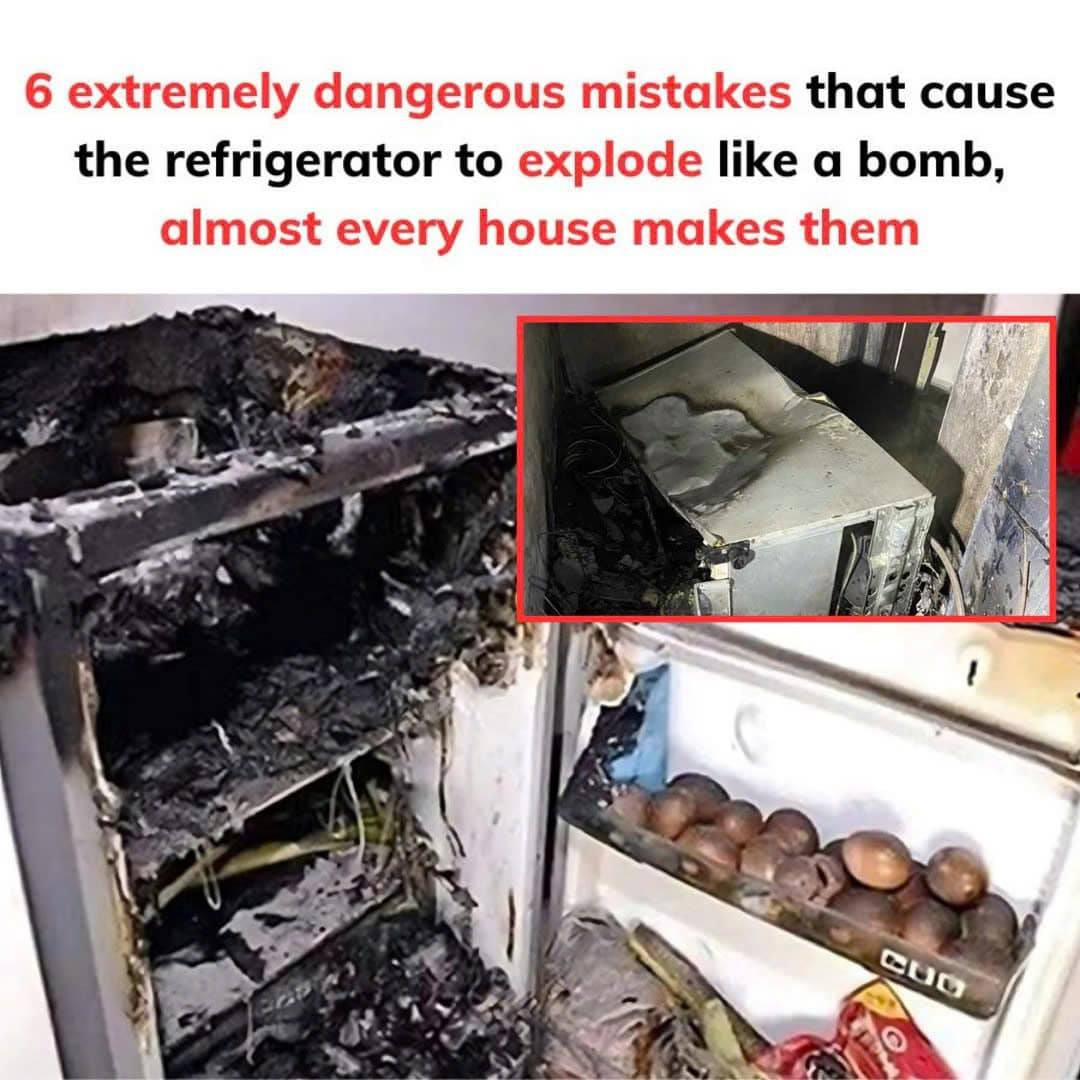ADVERTISEMENT
### ✅ How to avoid it:
ADVERTISEMENT
* Plug the fridge **directly into a grounded wall outlet**.
* Never use extension cords or power strips.
* Ensure your outlet is properly wired and grounded.
* If lights flicker or outlets feel hot, call an electrician.
—
## 🧯 3. Ignoring Refrigerant Leaks
**The mistake:** Not noticing or addressing a **chemical or gas smell**, or a hissing sound from your fridge.
**Why it’s dangerous:** Most refrigerators use refrigerants like **isobutane (R-600a)** — a highly flammable gas. If it leaks and ignites (from a spark or static), it can **cause an explosion**.
### ✅ How to avoid it:
* If you smell chemicals or gas, unplug the fridge **immediately**, ventilate the area, and call a professional.
* Don’t attempt to fix refrigerant lines yourself.
* Schedule **regular maintenance** to check for leaks or pressure issues.
—
## 🧊 4. Manually Defrosting with Sharp Tools
**The mistake:** Using knives or screwdrivers to chip away ice inside your freezer.
**Why it’s dangerous:** One wrong move and you could **puncture the refrigerant coil**, causing gas to leak and mix with air — leading to **a fire or explosion** if it meets a spark.
ADVERTISEMENT
### ✅ How to avoid it:
* Never use sharp objects to defrost.
* Turn off the fridge and let the ice **melt naturally**, or use warm water.
* If you’re in a rush, use a **hairdryer on low heat**, held at a safe distance.
—
## 🔥 5. Storing Flammable Items on or Near the Fridge
**The mistake:** Placing aerosol cans, cleaning products, or lighters on top of or beside the refrigerator.
**Why it’s dangerous:** If the fridge overheats or sparks, these items can **explode or catch fire** quickly.
ADVERTISEMENT
### ✅ How to avoid it:
* Store flammable products away from all appliances.
* Keep the top of the fridge clear, especially of paper, plastic, or chemicals.
—
## 💡 6. Overloading the Fridge or Freezer
**The mistake:** Cramming the fridge with too many items, blocking air vents inside.
**Why it’s dangerous:** Overworking the compressor can cause it to **overheat**, and blocked airflow may **trap heat**, both increasing explosion or fire risks.
### ✅ How to avoid it:
* Avoid overfilling your fridge or freezer.
* Keep items spaced out to allow **proper circulation**.
* Don’t cover internal vents with food containers or bags.
—
## 🧯 Bonus Tips for Refrigerator Safety
* **Check your model:** Some older or low-quality fridges have been recalled for safety defects. Search for recalls using your model number.
* **Install a smoke detector** near your kitchen (but not directly above the stove).
* **Unplug during maintenance** or long periods of disuse (like vacations).
* **Listen for strange noises** (clicking, hissing, loud humming) — these may signal mechanical issues.
—
## 🚫 Final Thoughts: It’s Not Just About Food — It’s About Safety
While refrigerator explosions are rare, they’re not impossible — especially when **basic maintenance and safety guidelines** are ignored. Treat your fridge like the powerful appliance it is: keep it clean, ventilated, and away from hazards.
With a little care and awareness, you’ll keep both your food and your home **safe, cool, and peaceful.**
—
Would you like a printable safety checklist for fridge maintenance? Let me know, and I’ll create one for you!
ADVERTISEMENT
